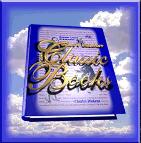World's Greatest Classic Books Feature:
Fyodor Mikhailovich Dostoevsky
Featured works:
All
Books Written By
Fyodor Mikhailovich Dostoevsky
BOOK LINKS
abebooks.co.uk.
A&E Shop
All-Ink.com
AlphaCraze.com
Amazon.ca
Amazon.com
Amazon.co.uk
BookCloseOuts.com
Booksamillion.com
Chapters.ca
eCampus.com
MUSIC LINKS
Music123
OldGlory.com
PlayCentric
PosterNow
PushPosters
Tower Records
SEARCH THE WEB
looksmart.co.uk
People-Finder.com
Search. Get Paid. Be Smart.
Died: February 9, 1881, in St. Petersburg, Russia
Fyodor Mikhailovich Dostoevesky was born in Moscow to impoverished parents. While his father was descended from the Russian nobility and his mother was from a wealthy merchant family, the political upheaval in Russia had reduced them to the economic status of the working class.
Dostoevesky's father worked at a hospital for the poor, and consequently the family, including Dostoevesky's four brothers and two sisters, lived on the hospital grounds. With sickness and death around him, Dostoevesky developed a familiarity with human suffering that may have prepared him for the tragedies he would experience throughout his life.
In 1837, Dostoevesky enrolled at the St. Petersburg School for Military Engineering. While he was at school, his father was murdered by his servants for the mistreatment they had suffered. The loss of his father had not only an emotional impact on Dostoevesky, but seriously affected his financial stability. He was left with little money and few friends. Despite these hardships, Dostoevesky graduated as a Russian military engineer in 1841.
Dostoevesky's first novel, Poor Folk, was published in 1846 and at this time, he began to associate with a secret revolutionary group called the Petrashevski Circle. As a result, he was arrested and imprisoned for conspiracy. He was imprisoned for four years and spent another four years in the Siberian Army before being released. The physical hardships and poor living conditions contributed to his problems with epilepsy which would continue to plague him for the rest of his life.
After his release, he met a young widow named Maria Isayeva and they were married in 1857. While it was not a happy marriage, he began editing and writing again almost immediately. His time in jail and in the army had changed his view of the world and his writing style reflected that change. He became more philosophical and began to develop and expand his theories of social structure.
In 1864, Dostoevesky's wife died after many years of illness. He began an affair with Apollinaria Sulova who was the model for many of the women in Dostoevesky's books. Three years later, Dostoevesky married his stenographer, Anna Snitkina. To avoid creditors, they traveled through western Europe for several years, visiting Germany, Italy and Switzerland. It was at this time that Dostoevesky developed his dislike for the Western system of values.
The novel Crime and Punishment was published in 1866. It was immediately popular and Dostoevesky's fame spread quickly throughout Russia. However, it wasn't until the book's translation into English, after his death, that he achieved much of a reputation outside of Russia. Crime and Punishment, a story of sin, suffering and redemption, was Dostoevesky's first successful novel since his imprisonment and it reflected his changed attitudes. The liberal attitudes of youth had been replaced by the more conservative attitudes of the middle-aged.
Dostoevesky's last work, and also one of his greatest, was The Brothers Karamazov. Within the context of a tragedy, the story includes tales of prophecy, abstract philosophical discussions, and psychological analysis of human nature. Following the style of Crime and Punishment, The Brothers Karamazov is occasionally wordy and rarely offers solutions but perpetually raises disturbing questions.
Much of Dostoevesky's writing focuses on the topic of morality, and frequently, within the context of crime, explores acts of transgression or an investigation of the religious experience. While he never completely resolved the questions his writing raised, he professed the belief that a person, guilty of an evil act, could be cleansed through suffering.

Brothers Karamazov
Considered Dostoevsky’s best work,
this novel centers around Fyodor Pavlovitch Karamazov and his four sons, Dmitry, Ivan,
Alyosha, and Smerdyakov. It is a novel of religious, social, and ethical ideas and is a
rich illustration of the author’s well known mastery of psychological probing.

Crime and Punishment
Perhaps the greatest of all psychological
crime novels.
Raskolnikov, a student, decides to kill a “worthless person” to help his
impoverished family, and to prove that he is exempt from moral law. After committing the
crime, Raskolnikov is overtaken by panic and tormented by conscience as, one by one, his
motives are proven false.

Notes from Underground
Written in 1864, this classic novel
recounts the apology and confession of a minor nineteenth-century official, an almost
comical account of the man's separation from society and his descent
"underground."

The Idiot
Returning to Russia from a sanitarium in
Switzerland, the Christ-like epileptic Prince Myshkin finds himself enmeshed in a tangle
of love, torn between two women—the notorious kept woman Nastasya and the pure
Aglaia—both involved, in turn, with the corrupt, money-hungry Ganya.
